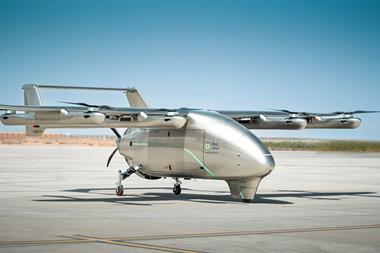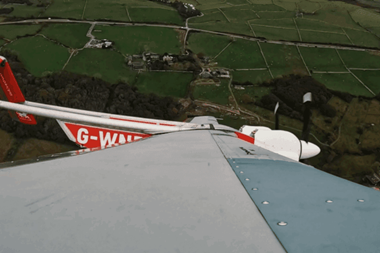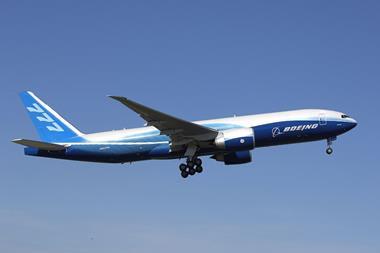Momentum is building in the global drone development market, despite there being a wait still for drone aircraft to begin flying.
Dronamics has been on a roll lately. After the signing of a letter of intent with Emirates Post to jointly explore possibilities of same-day deliveries within the United Arab Emirates (UAE) in October, Dronamics chief Svilen Rangelov sat down the following month with executives of Aramex to ink an agreement to jointly develop same-day middle-mile and long-range deliveries by drone.
The partnership with Aramex will initially focus on development opportunities in the UAE before venturing into other markets like South Africa and Australia.
The same day when the Dronamics-Aramex partnership was forged, the cargo drone airline announced a deal to anchor production of its Black Swan drone.
The UAE’s Strategic Development Fund, which has been the largest investor in Dronamics since late 2022, agreed to set up a joint venture to produce Black Swan aircraft. This will constitute the first serial production plant of the aircraft.
The UAE has moved to become an incubator for unmanned vehicle technology development.
The Dronamics-Emirates Post agreement was announced at the official launch of the Smart and Autonomous Vehicles Industry Cluster in Abu Dhabi, which aims to become a global hub for the development of smart and autonomous vehicles by drawing in OEMs, start-ups, researchers and talent.
Drones are on the advance elsewhere too. In the US the Federal Aviation Administration granted permission to Ameriflight to operate drone aircraft.
The US carrier is teaming up with Matternet for the latter to perform flights to deliver healthcare and e-commerce shipments across the US. Matternet was the first drone delivery system to receive US certification in 2022.
Drone Deliveries Canada has performed about 1,800 flights from Edmonton International Airport to an off-airport healthcare site over the past 18 months.
It is now preparing for a new stage that will serve a healthcare facility further away, which is meant as a test case to prove the viability of beyond-line-of-sight operations to open up the concept across Canada.
In the US a couple of regional feeder operators for the integrators are now flying Cessna Caravans that are fully equipped for autonomous flight.
For now, they are steered by pilots in the cockpit, but the industry is getting ready for autonomous plane operations, which are bound to kick off in cargo long before passenger flights will be allowed to be piloted remotely.
It will be some time before these plans get to the runway, but the momentum is clearly building.










